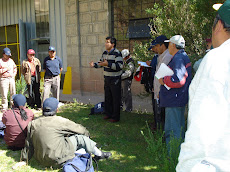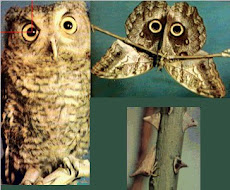http://www.newscientist.com/article/dn16692-fish-numbers-outpace-human-population.html
Fish numbers outpace human population
17:50 02 March 2009 by Debora MacKenzie
For similar stories, visit the Endangered Species and Mysteries of the Deep Sea Topic Guides
It's increasingly likely that the fish you eat was farmed not caught wild, according to the latest statistics of the UN Food and Agriculture Organization.
The group's two-yearly assessment of world fisheries, published today, comes with mitigated good news.
The outlook for wild ocean fish remains gloomy: 80% of all fisheries are at or beyond their maximum yields, and over-fishing continues to climb. Yet the amount of fish available to eat is growing faster than the human population, thanks to a boom in fish farming.
The FAO calculates that, for the first time, fish farms produce half the fish we eat, up from less than a third in 2002. With wild-catch fisheries maxed out, any more increases in fish production will depend on farms.
Problems in the wild?
It is unclear from the FAO data whether fish farms are indirectly putting more pressure on wild stocks.
Many farmed fish eat fishmeal and oil, made from small species like sardines. The FAO says the tonnage of these species consumed has trebled since 1992, but does not say whether this is a consequence of fish farming, or because the fish are being used for other purposes.
In a parallel report, international fisheries pressure group Oceana charges that by relying on wild-caught species like sardines, which now constitute one third of world fisheries, fish farms are starving larger predators, including tuna, marine mammals and seabirds.
The FAO observes that the unrestricted competition between companies is a waste of energy: too many boats mean that fewer fish are caught per litre of boat fuel. Meanwhile, boat owners buy more powerful, less efficient engines to beat the competition.
Doctor and Master in environment for the Valencia University- Spain. Fisheries Engineer(UNICA - Perú) and Lawyer (Alas Peruanas - Perú). Graduate Teaching: Villarreal, San Marcos, UNI, Cantuta, Trujillo, Cajamarca, among other. Undergraduate Teaching in the FIPA (UNICA). This blog is provided to indicate views, news and information with respect to environment and natural resources.
Entrevista en el Colegio de Ingenieros del Peru
article published on the web
Participation in International Projects
- Curso de Introducción a la Sismologia, Sismologia Instrumental, Sismologia e Internet y GMT: Planos, mapas, graficos y diagramas en la Universidad de Sao Paulo (Brasil) 2009
- PROYECTO DE INVESTIGACION CYTED-BRASIL
- CON LA UNIVERSIDAD DE VALENCIA-ESPAÑA
- Participación en la Organización Internacional de Universidades para el Desarrollo Sostenible (OIUDSMA)
lunes, 9 de marzo de 2009
Suscribirse a:
Enviar comentarios (Atom)
University Accreditation and Quality: The white books
Environmental White Books
AS UNIVERSITY PROFESSOR

with students of master environment management (UNH)
Parana
Parana university (Curitiva-Brasil) February 2009
Huancayo
golden forest - Huancayo - Perú-(April 2009)
LINKS
Seguidores
Archivo del blog
-
▼
2009
(18)
- ► septiembre (2)






No hay comentarios:
Publicar un comentario